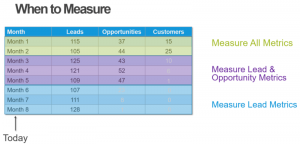Many entrepreneurs with poor credit often find it difficult to attract financing for their start-ups. Conventional banks are very strict about credit scores, while small business factoring deals more with your ability to generate future invoices.
The following information will help you improve both your personal and business credit score by following a strict budget:

Establish Small Business Credit
If your business already deals with vendors, find out from each one if they report your payments to any of the three major credit bureaus. This could help to establish a credit history for your business. Vendors that typically report payment history to the three credit agencies include wholesalers, suppliers, financial institutions and leasing firms. The sooner you can establish a credit score for your business, the better.
How Business Loans Relate to Personal Credit
For small businesses that employ less than 20 people, personal credit scores are closely associated with business credit scores from the perspectives of banks and other lending institutions, according to Experian. In most cases, the Fair Credit Reporting Act (FCRA) limits financial institutions to officially evaluate personal credit history, but personal credit can still be referenced when a new business has not yet developed its own credit history.
The easiest way to get initial financing for a new company is for you to already have good credit. Remember that you can still turn to small business factoring finance under certain conditions, regardless of credit. If your score is low, you will need to raise it in order to be approved for a conventional loan.
Improve Your Credit Score
The best way to improve your credit score is to pay off debts as soon as possible. Make sure that credit card debt does not exceed 35 percent of your current credit limit. If that’s the case, then work on reducing your credit card debt quickly. You should also immediately realize the need to stay current on bills so that debt doesn’t spiral out of control. Work on bringing all past due bills up to date. Remember that late payments have an adverse effect on your credit score.
After reviewing a copy of your credit report, find out if you can negotiate with creditors about unpaid accounts. Collection agencies will likely remove negative marks on your report once you pay off the account. Be sure to get this commitment in writing from them for your records.
While some people try to build a savings account while paying off debt at the same time, you will be doing yourself a bigger favor to pay down your debt as quickly as you can. Even if you are trying to save money to buy new equipment, it’s more advantageous to reduce debt.
Finance Options
Depending on how much money your business earns, it’s possible to get a Working Capital loan. You will need a FICO score of at least 551, and annual sales of at least $ 100,000. The interest on such loans is fixed and tax deductible. After you have paid off the loan in 18 months, you will have established strong business credit. This type of loan works best for small businesses such as restaurants, auto repair shops, medical and dental offices, salons, and retail outlets.
A more flexible alternative is small business factoring, which doesn’t require a credit check. This is an emerging type of financing that isn’t considered a loan at all, yet it can advance you the money that you need to run your operation in a matter of days. If your business is based on invoices, you can sell those invoices to a factor at a discount, and in return you will get the money that is owed to you faster.
Small business factoring works for businesses with steady clients. Even if you have some clients that pay late, the factor will help you streamline your business by filtering out unreliable clients. It’s more of a partnership that doesn’t require you to compromise your business. Inevitably, both you and the factoring loans firm win financially. It’s the type of financing that puts you ahead instead of behind, while avoiding the typical hassles of conventional lending.
Business & Finance Articles on Business 2 Community(53)
Report Post






